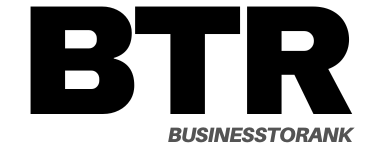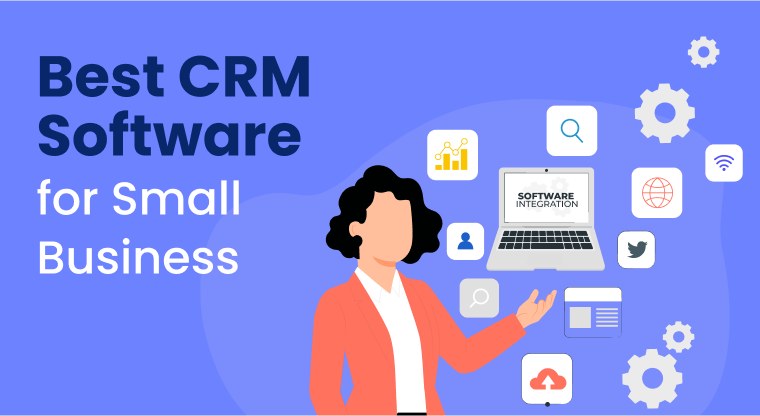Customer Relationship Management (CRM) systems have become essential tools for businesses of all sizes, helping to streamline operations, improve customer satisfaction, and boost sales. For small businesses, choosing the right CRM can be particularly challenging, as you need a solution that balances affordability with powerful features to help you grow.
In this article, we will explore the best CRM options for small businesses, how to select the right one for your needs, and key features to look for in a CRM system.
What is a CRM and Why Do Small Businesses Need One?
A CRM is software that helps businesses manage interactions with current and potential customers. The right CRM allows companies to track communications, manage leads, and build relationships more effectively. It organizes customer data into a single database that can be easily accessed and analyzed to improve the customer experience.
For small businesses, using a CRM can offer several key advantages:
- Efficient Lead Management: Track prospects and leads from initial contact to sale.
- Improved Customer Retention: A CRM enables businesses to follow up with customers, resolve issues quickly, and build stronger relationships.
- Better Team Collaboration: With a centralized database, all team members can view the same information, ensuring everyone is on the same page.
- Data-Driven Decisions: CRM software often includes analytics tools that allow you to make informed decisions based on real-time data.
Key Features to Look for in a CRM for Small Businesses
When choosing the best CRM for your small business, consider these essential features:
- Ease of Use: The CRM should be easy to navigate and use without requiring extensive technical skills.
- Affordability: Small businesses often work with limited budgets, so it’s important to choose a CRM that offers good value for money.
- Scalability: As your business grows, your CRM should be able to scale with it, allowing you to add more users, features, and integrations.
- Automation: Automating tasks such as follow-up emails, data entry, and customer segmentation can save time and increase productivity.
- Reporting and Analytics: Detailed reporting features are essential for tracking your progress and making data-driven decisions.
- Mobile Access: Many small business owners and sales teams need access to CRM tools on the go, so mobile functionality is crucial.
- Integration: The ability to integrate with other software (like email, marketing tools, and social media platforms) is important for seamless workflows.
Now, let’s dive into some of the best CRM options for small businesses.
1. HubSpot CRM
Overview
HubSpot CRM is widely considered one of the best free CRMs available for small businesses. It offers a solid set of features at no cost, making it a popular choice for businesses that are just starting out.
Key Features:
- Free Plan: HubSpot offers a robust free plan that includes contact management, email tracking, deal pipelines, and more.
- User-Friendly Interface: The platform is easy to navigate, even for users with no prior CRM experience.
- Integration: HubSpot integrates seamlessly with a variety of tools, including Gmail, Outlook, Google Drive, and Slack.
- Scalability: As your business grows, you can upgrade to HubSpot’s paid tiers, which include additional sales, marketing, and customer service features.
Pros:
- Free for small businesses with basic needs.
- Intuitive and easy to use.
- Strong integration options.
Cons:
- Some advanced features are locked behind the paid plans.
- Paid tiers can become expensive as you scale.
2. Zoho CRM
Overview
Zoho CRM is another powerful option for small businesses, offering an array of features at an affordable price. Known for its customization options, Zoho CRM is ideal for businesses with unique needs.
Key Features:
- Affordable Pricing: Zoho offers a free plan and affordable paid plans starting at $12 per user/month.
- Customization: Zoho CRM allows businesses to customize workflows, dashboards, and modules to fit their specific needs.
- Automation: The platform automates repetitive tasks, like sending follow-up emails or logging customer interactions.
- Mobile Access: Zoho CRM has a strong mobile app, making it easy to manage your business on the go.
Pros:
- Highly customizable and affordable.
- Includes sales automation and analytics features.
- Robust mobile app.
Cons:
- The learning curve can be steep due to extensive customization options.
- Customer support can sometimes be slow.
3. Salesforce Essentials
Overview
Salesforce is one of the most well-known CRMs in the market, and its Essentials package is designed specifically for small businesses. It’s a cloud-based CRM that offers enterprise-level features at a price that small businesses can afford.
Key Features:
- Comprehensive Features: Salesforce Essentials includes tools for lead management, contact management, and workflow automation.
- Scalable: While Essentials is designed for small businesses, Salesforce has the capacity to grow with your company, offering advanced plans and features as you expand.
- App Integrations: Salesforce integrates with over 2,500 business apps, including marketing and sales tools.
- Mobile Functionality: The mobile app is fully featured, allowing users to manage their business from anywhere.
Pros:
- Rich feature set, even at the entry level.
- Excellent scalability and integration options.
- Trusted brand with a large user base and extensive support.
Cons:
- Higher learning curve compared to other small business CRMs.
- Can be more expensive as you scale and add more users.
4. Freshsales (by Freshworks)
Overview
Freshsales is a part of the Freshworks suite and is designed to help small businesses grow through better customer management. It’s an easy-to-use CRM with a focus on lead management and sales automation.
Key Features:
- Lead Scoring: Freshsales helps prioritize leads by automatically scoring them based on behavior and interactions.
- AI-Powered: Freddy AI helps businesses analyze data and make smarter decisions.
- Workflow Automation: Automate routine tasks like lead assignment, follow-ups, and data entry.
- Affordable: Freshsales offers pricing plans starting at $15 per user/month, making it an affordable option for small businesses.
Pros:
- Easy to set up and use.
- Built-in phone and email features.
- AI-powered tools for data analysis.
Cons:
- Some advanced features are only available in higher-tier plans.
- Fewer third-party integrations compared to larger CRMs.
5. Pipedrive
Overview
Pipedrive is a CRM that is laser-focused on sales pipeline management, making it a great choice for small businesses that prioritize sales above all. It offers a visual pipeline to track leads and deals from start to finish.
Key Features:
- Visual Sales Pipeline: Pipedrive’s visual approach makes it easy to track deals and manage sales processes.
- Email Integration: Pipedrive integrates with Gmail, Outlook, and other email clients to keep track of communications.
- Automation: Automate repetitive tasks like sending follow-ups or updating contact information.
- Mobile App: Pipedrive’s mobile app allows users to manage their pipelines on the go.
Pros:
- Excellent for businesses that focus heavily on sales.
- Simple and visual interface.
- Strong email integration.
Cons:
- Less suitable for businesses that need features beyond sales management.
- Limited customer support on lower-tier plans.
Conclusion
Selecting the best CRM for your small business depends on your specific needs, budget, and growth plans. If you’re looking for a free, user-friendly solution, HubSpot CRM might be the perfect fit. For those seeking advanced customization and automation, Zoho CRM offers great value. If scalability and a wide range of integrations are important, Salesforce Essentials is a reliable option. Freshsales and Pipedrive are also excellent choices, particularly for sales-driven businesses.
By carefully evaluating your business requirements and considering the features, pricing, and scalability of these platforms, you can select the CRM that will help you build stronger relationships, drive sales, and support long-term growth.

